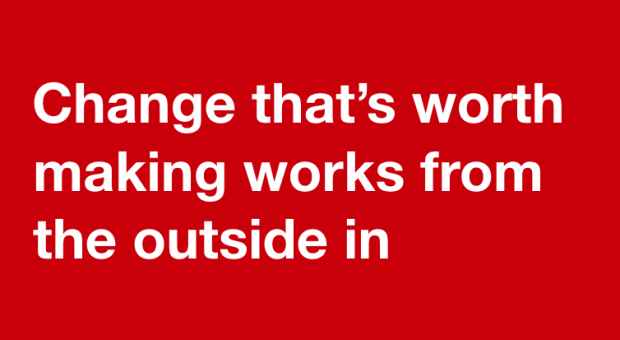Blog posts
Collected posts from the various blogs I’ve contributed to since 2002.
Collected posts from the various blogs I’ve contributed to since 2002.
This was originally posted on Government technology At the Open Government Partnership (OGP) summit last week in Paris, the UK government joined a new international collective action that recognises the role that Open Source Software has to play in increasing transparency and harnessing new technologies to improve governance. Our commitment We committed to sharing what we’ve learnt over the past few years about bringing open source and related working practices into government, to working collaboratively with other governments to develop common practices and policies, and particularly to making sure that open source plays a big role in our growing international collaboration around Digital Marketplace and procurement reform. ...
This was originally posted on the Government technology blog. It’s been slightly edited here. Recently a small group of technology leaders from across government gathered for an informal event to discuss the role that we play in developing user-centric services and their impact on wider society. It was one of a series of events we’re hosting as we refresh the cross-government Technology Leaders network, and experiment with different types of events to strengthen the community. ...
In February it will be six years since a small group of us gathered in a scruffy room in Lambeth to work on what we called alpha.gov.uk. Matt had introduced me to Tom Loosemore who, over coffee at the Book Club, had persuaded me to put the company and products James and I were developing on hold and take a leap into government. Over three months, the various forces that had been pushing for a new approach to digital government began to coalesce into what we now call GDS, and a public prototype of how government could be presented online. I was the first developer in and had the privilege of laying the groundwork for much of what was to come. ...

This was originally posted on the Government technology blog A short while back I was fortunate to speak at GitHub’s annual Universe conference in San Francisco. GitHub is a tool we use extensively at GDS and it was good to be able to talk with other customers, share how we’re using the product, and discuss the future product direction with their core team. I was asked to tell the story of GOV.UK and that’s what most of my talk covered. Starting with Martha Lane Fox’s report, the alpha version of GOV.UK and the story from there. I was keen to emphasise a number of points. ...
This was originally posted on the Government technology blog We’ve written a few times recently about the work that we’re doing to refresh the government Technology Leaders Network. There’s lots going on around the network and we’re working hard to keep up the momentum and make sure we’re addressing the right challenges in the right way. We are now looking for a passionate technologist and organiser to help us with that. We want someone who understands modern technology delivery and the opportunities that brings for government, and who will help build and focus the community. ...
This was originally posted on the Government technology blog The Technology Leaders Network was established in 2013 to help departments work collaboratively, share good practice and drive the technology agenda across government. Over the summer we have been working on plans to breathe new life into the Network; looking at how we can make the most out of bringing Technology Leaders together. Traditionally Tech Leaders have met for monthly board meetings with a restricted attendee list and a formal set of minutes circulated afterwards. We will continue to have those meetings where specific decisions are needed, but want to make the Network more transparent and open it up to the wider pool of technologists we have across government. We’re going out to departments more, learning from external speakers and seeing demonstrations of tools in action. ...
This was originally posted on the Government Technology blog A few weeks ago I spoke at an event organised by Oracle focussed on how the public sector uses the cloud. I talked about why we are committed to the cloud, how this commitment has changed how we think about technology, and what we plan to do next. I spoke alongside my Government Digital Service (GDS) colleague Iain Patterson, who updated attendees on the work of Common Technology Services (CTS). ...
This was originally posted on the Government technology blog I’ve been with GDS since its very first days, leading its technology communities, shaping our approach to architecture and development, providing assurance and direction across a number of programmes, and building connections across government. I’m really excited to now be taking on a clearer role developing our approach to technology leadership, open standards and architecture and I want to tell you a bit more about this work. ...
This was originally posted on the GDS Technology blog. I spoke recently at the Business Reporter’s Data Security in the Cloud event about how security has changed to face the reality of the modern internet era. The old world of assurance and compliance and ‘ security says no’ won’t cut it anymore. Security thinking has to be holistic and take into account users, culture, context and behaviour not just technology. ...
This was originally posted on the Government Technology blog. With the number of visitors we have coming through GDS we’re often asked to present various areas of our work, particularly architecture. We’ve usually kept the presentation pretty informal. People mean so many different things by architecture that it’s important to take some time to understand our audience before we dive into explaining our approach. Recently though, we’ve noticed some common patterns emerging and have begun pulling our thoughts together as an introductory slide deck. ...